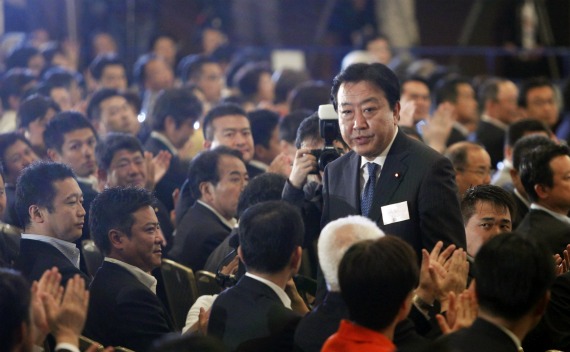Why China Worries About Japanese Prime Minister Noda
More on:

In her First Take on Japan’s new Prime Minister Yoshihiko Noda, my colleague Sheila Smith suggests that Mr. Noda is moderate, fair, and an experienced hand in Japanese and global financial affairs. That all sounds pretty good. But apparently from China’s perspective, the new prime minister is nothing but trouble.
While Premier Wen Jiabao and the Chinese Foreign Ministry have offered up short congratulatory statements to the new prime minister, most Chinese commentary has ranged from bleak to belligerent. Chinese analysts point out that the prime minister has not renounced his comments to the effect that Class-A Japanese wartime leaders should no longer be considered criminals nor has he committed not to visit the Yasukuni Shrine. He also has made reference to China’s rising nationalism and naval activities as posing a risk to regional stability. To top it all off, the new prime minister has been a strong supporter of the U.S.-Japan defense alliance.
Given the new prime minister’s apparent policy predilections, it seems to me that Chinese analysts have some reason to be concerned. Indeed, many U.S. security analysts were similarly worried when Japanese Prime Minister Hatoyama assumed power in 2009 with a seeming commitment to upgrading relations with China, while downgrading relations with the United States. However, while many U.S. commentators urged a “wait and see” approach to Prime Minister Hatoyama, the Chinese media have come out swinging. Xinhua noted, for example, that “though fast-burgeoning bilateral trade has made China Japan’s largest trading partner since 2009, the two major powers in East Asia still run into disputes from time to time, threatening the peace and stability of the region. And Japan has to be blamed for that.”
Some Chinese press have also seen fit to offer a series of recommendations to the new Japanese prime minister:
- Japan should give up any idea of leadership in the Asia Pacific: “Japan’s future lies in whether it can adapt to the changes in the Asia-Pacific region. It should bear in mind that it cannot either dominate the restructuring of the region, or lead it.” Furthermore, “some previous Japanese prime ministers have been trouble-makers and lacked the broad mind a leader of a world economic power should have.”
- Beijing is open to joint exploration of the resources in the waters surrounding the Diaoyu Islands. The only precondition is that Tokyo recognize "China’s complete sovereignty over the archipelago.”
- Noda’s cabinet must “carefully craft and implement a proper policy in treating Japan’s war past to soothe the resentment among the Chinese public toward Japan.”
- Japan should acknowledge China’s legitimate requirement for military modernization to defend its growing national interests…and “call off its dangerous practice of invoking China’s rise as an excuse to discard the defense-oriented policy after WWII from its own military expansion.”
I can’t imagine that many of these policy proposals will make it on to the new prime minister’s agenda. No doubt, over the coming weeks, more moderate Chinese voices will emerge with real ideas for improving Sino-Japanese cooperation. But until they do, the Chinese media have virtually assured that Prime Minister Noda will simply write them off. Then again, maybe that’s the point.
More on:
 Online Store
Online Store